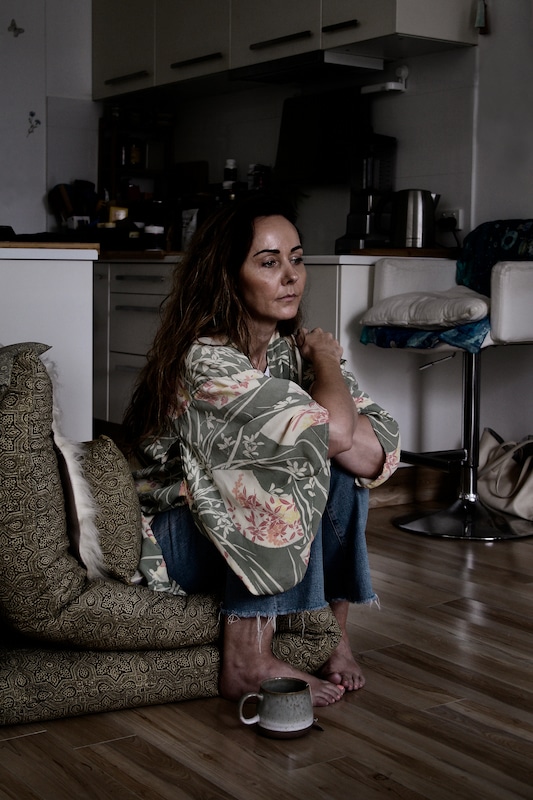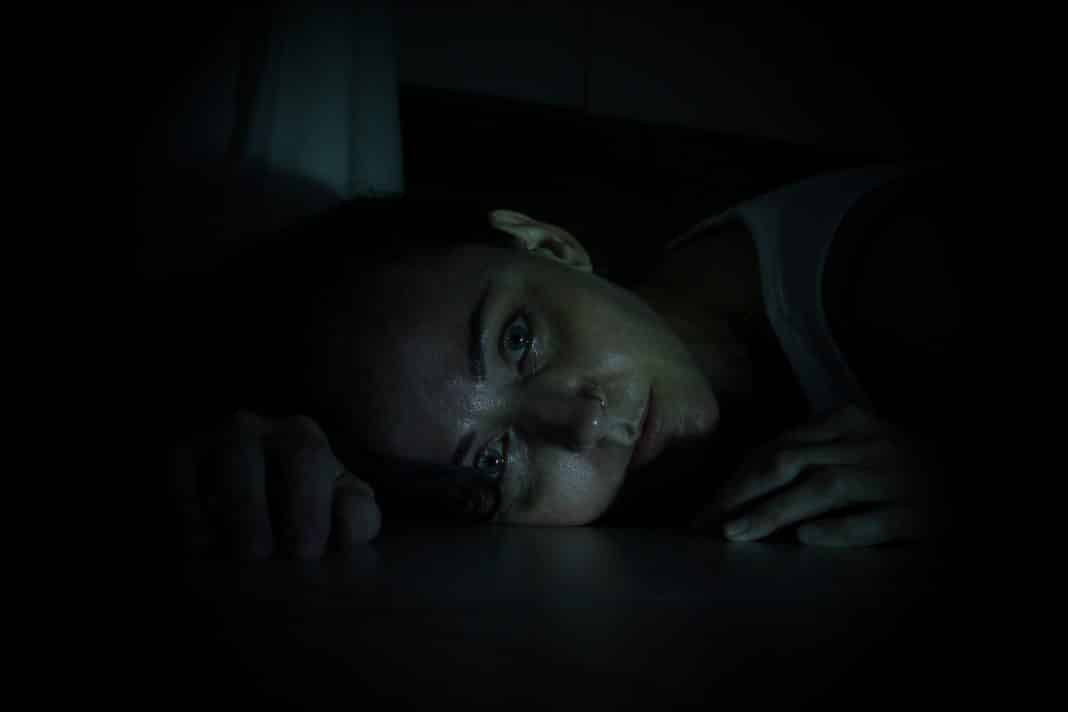March is Endometriosis Awareness Month, which aims to raise the profile of a debilitating disease that affects one in nine Australian women.
According to Endometriosis Australia, endo is a common disease where tissue similar to the lining of the uterus grows outside it in other parts of the body.
Diagnosis takes an average of 6.5 years.
This March, Canberra artist Melissa Hammond photographed local woman Kristy Stephenson, who lives with Stage IV Endometriosis – the most advanced stage.
“I said, I could show you all my scars from my surgeries, but she wanted to find out what pain looks like for me.
“For me, pain is usually in the middle of the night. I wake up in excruciating pain. I take myself to the bathroom, dripping with sweat, and lie on the cold floor in the dark.
“It’s something that nobody in my life has ever seen. I’ve always kept it on the down low, even from my parents when I was younger. I’ve had relationships in which I would close the door if I’m going through it.
“I was told from a young age, ‘There’s nothing wrong with you. It’s all in your head. You’re fine.’
“That thought has grown into this big monster that says I have to just keep pretending everything’s okay … I look fine, so I better act like I’m fine.”
Sadly, those messages also came from the mouths of several doctors in the prolonged stretch before Kristy was properly diagnosed.
“Feeling ignored, misunderstood, completely fobbed off. ‘It’s just stress.’ ‘Get over it.’ Those were the messages that I took for about 12 months,” she says.
“Now I have my professional persona, and my personality with my friends and family, where everything’s cool. And then I have this private world of pain that I deal with.”
Kristy met “the beast named Endometriosis” for the first time when she was 20, on a New York City bus through Manhattan.

She experienced a sudden fever, combined with crushing stomach pain, made worse by the late summer humidity.
“You start to faint, want to vomit, don’t know if you’re dying. You have to get off the bus but have no idea if your legs will move.
“You yell some incoherent swearwords at the poor bus driver, get off the bus, walk towards whatever open door you can find, and say ‘bathroom’ to whoever is in front of you.
“Drenched in sweat, in excruciating pain, you collapse. Then you wake up with people all around you in a café restroom with next to no recollection of what happened or how you got there.
“That is what it feels like to have an endometrial cyst rupture.
“At 44, I have lived with this debilitating disease for my whole adult life. In the last three years, I’ve had two major surgeries. I lost my left ovary, and nearly ended up with a colostomy bag.
Kristy allowed Melissa to capture the scene of her lowest moments in hopes of raising awareness for the personal burden women bear in recovery.
“I want workplaces to understand the physical, emotional, and mental toll this disease takes on a person. Sometimes ‘fake it till you make it’ results in being found by your manager, passed out under your desk from pain.
“Just because you look okay, doesn’t mean that you’re high functioning most of the time.
“The financial burden of paying for my surgery, then funding my life for three months while recovering was extraordinarily difficult, dipping into superannuation funds and personal savings.
“You get 10 days of sick leave a year. I could easily exhaust that in a month.”
The 24 years since her diagnosis have brought an increase in endo awareness among younger generations, something Kristy is immensely happy to see.
“Back then, I was told it was a single spinster’s disease, an old woman’s disease.
“I was told that having children should cure it; 21 years old, and being told to have children to help my pain.
“That’s something that has been taken away from me. The advice I was given when I was younger didn’t allow me to look into the preservation of my organs that would allow me to have children at a later stage.
“The younger generation are more fortunate in that there is a bit more of an awareness.
“As an older woman who’s gone through it, I would really like to say that I see them and there’s support out there.”
Canberra Daily would love to hear from you about a story idea in the Canberra and surrounding region. Click here to submit a news tip.



